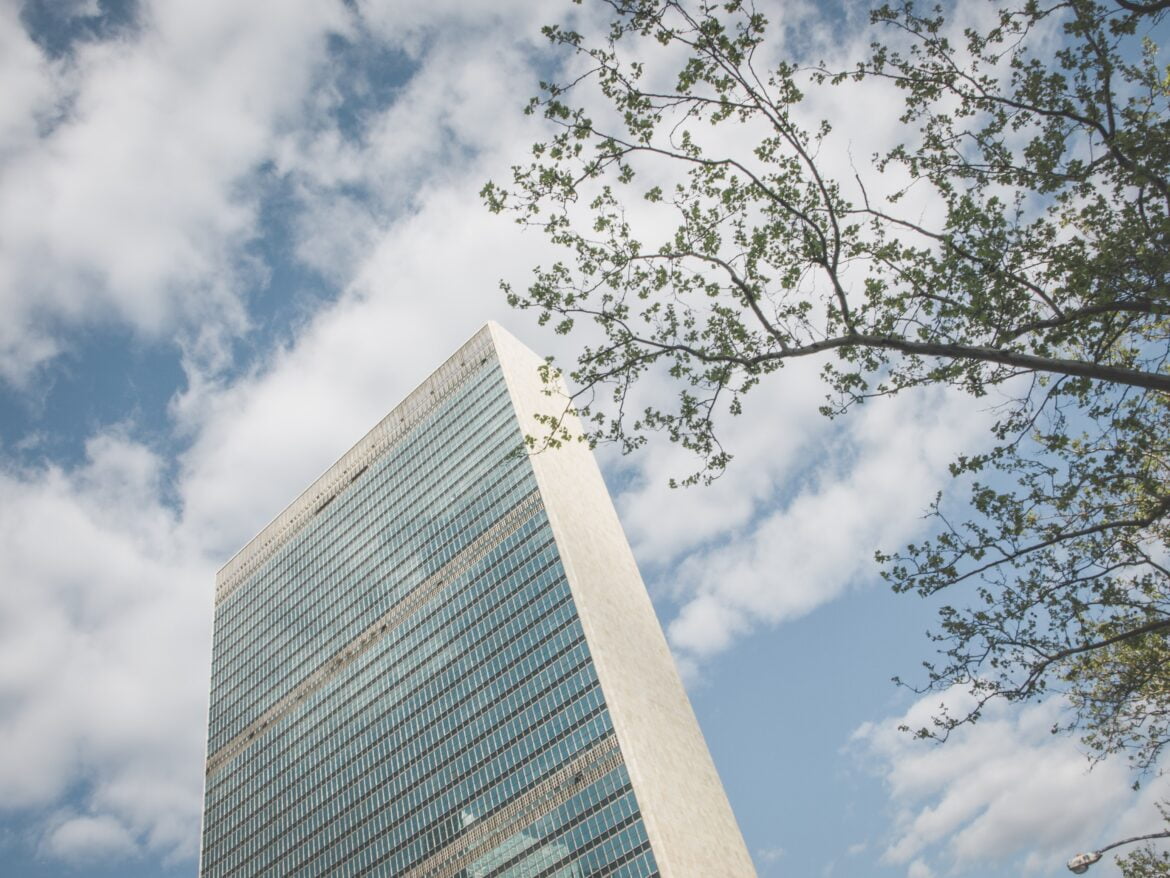The Sustainable Development Goals (SDG) summit, which took place at UN headquarters during the General Assembly High-level Week 2023 in New York, revealed the sheer lack of progress made on the promise of 2015.
Against the backdrop of a tumultuous and challenging 2023, the summit’s Political Declaration was meant to renew global leaders’ commitment to SDGs. A beacon of hope? Perhaps. But one thing’s for sure: the world can’t afford for leaders to continue playing lip service.
The world is falling behind on SDGs
In 2015, the Sustainable Development Goals (SDGs) were adopted by UN member states in an effort to make the world a better place. These 17 non-legally binding goals include 169 targets and cover everything from the bold ambition of ending world hunger and poverty to taking “urgent action” to combat climate change and its impacts.
Back then, filled with promise, the adoption of the goals was hailed as a “defining moment in human history.”
But, with the 2030 deadline to achieve these ambitious goals quickly approaching, the world is falling behind on progress. In fact, according to a recent United in Science report, a mere 15 per cent of the goals are on track.
Meanwhile, in April, the SDG Progress Report revealed that progress on over 50 per cent of goals is “weak” and for more than 30 per cent of the goals, the world was found to have “stalled or gone into reverse” – this includes the number of those living in extreme poverty (Goal 1, Target 1.1), which is now higher than it was four years ago, while world hunger is now at levels “not seen since 2005.”
When it comes to action on climate, coal, oil, and gas continue to account for 75 per cent of global greenhouse gas emissions, which are also at an all-time high.
The progress report also outlined that, at current rates, it will take 286 years to close the legal protection gender gap and remove discriminatory laws.
As for education, by 2030, projections are that 84 million children will be out of school, and a staggering 300 million children or young people attending school will leave unable to read and write.
Political Declaration adopted to “accelerate action” on SDGs
Reviewing these figures on poverty, hunger, and climate is truly shocking and reveals just how far away the SDGs are from becoming a reality.
At the SDG summit, which took place on 18-19 September 2023, there was a call launched to “rescue” the SDGs in light of this severe lack of progress.
Secretary-General António Guterres said that SDGs “carry the hopes, dreams, rights and expectations of people everywhere,” however, at the halfway point to the deadline, it’s looking less and less likely that they’ll be achieved.
But, with the facts laid bare and a seemingly renewed sense of urgency, the Political Declaration to “accelerate action” was adopted, despite a coalition of eleven countries objecting, citing the use of unilateral sanctions.
The declaration, facilitated by Ireland and Qatar, includes a resolve to “end poverty and hunger everywhere” and a commitment to achieving a world where “humanity lives in harmony with nature.” It also outlines concern regarding the “marked increase” of the estimated SDG financing gap, welcoming the Secretary-General’s efforts to address the SDG financing gap through an SDG stimulus.
At the Forum, Guterres called for leaders to transform this support into “real investments” in developing countries, urging that at least $500 billion a year for sustainable development needs to be reached. He subsequently called for the formation of a Leaders Group to deliver a set of “clear steps” to enable the $500 billion to “start flowing” before the end of next year.
Support for reforming international financial architecture was also outlined, and the document said that leaders will continue to integrate the SDGs into their national policy frameworks and develop national plans, further localising the SDGs.
A path toward progress or more empty promises?
A criticism launched at the Political Declaration is that it is short on specifics, with lots of bold statements and flowery words but little detail on how the utopia it sets out will materialise. This is especially concerning considering leaders’ inaction over the last eight years and begs the question, will the next seven be more of the same?
One can only hope that the call to action launched at the summit does not fall on deaf ears and that leaders truly do “step up” to the task at hand.
By Madaline Dunn, Lead Journalist, ESG Mena



